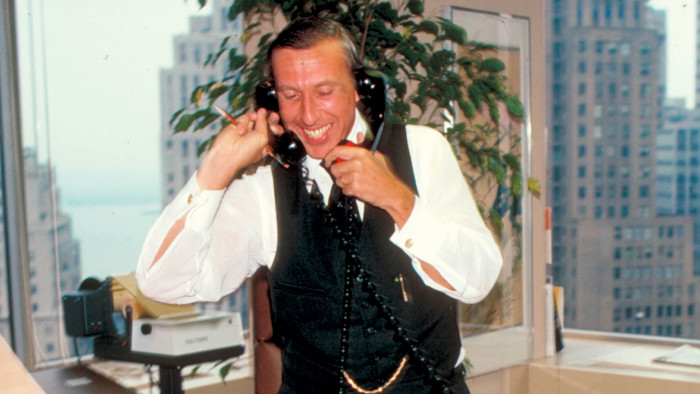Are good works started to atone for sins?

Roula Khalaf, Editor of the FT, selects her favourite stories in this weekly newsletter.
People in high places are generally expected to remain resident (if not tax domiciled) on the moral high ground.
They do not lie or cheat; they are only ever, as British politician and diarist Alan Clark infamously put it, “economical with the actualité”. And even then, if their economy becomes apparent, they are typically so mortified that they immediately seek to atone through tireless good works.
John Profumo, like Clark, a junior minister, having misled parliament about his familiarity with a Soviet attaché’s female companion, felt compelled to resign and spend his next 40 years cleaning the lavatories at a charity in London’s East End. That he also, unlike Clark, devoted his remaining energies to the alleviation of poverty and, unlike Clark, bequeathed the world a genuinely funny political epigram (Nil combustibus pro fumo — There’s no smoke without fire) is less well remembered.
Jonathan Aitken, another junior minister, used his imprisonment for perverting the course of justice to find God and his ensuing freedom to disseminate Psalms, and alms, to the needy. More recent ex-minister and justice perverter Chris Huhne, on finding that Aitken had sent him several verses, deemed them “marvellous”. What God remarked on being found by Aitken is not recorded.
Even politician and fictionalist Jeffrey Archer dedicated his own gaol term for perjury to enriching the literary canon and the lives of airport book purchasers with . . . OK, so it doesn’t always follow.
But the principle is not unknown in high finance, either. Remember Michael Milken, Wall Street’s “junk bond king”? After earning $1bn in four years, he was indicted on 98 charges of securities fraud, insider trading and racketeering, served 22 months of a 10-year prison sentence, paid $600m in fines and restitutions, beat prostate cancer and became a healthcare philanthropist. He funded so much research that Fortune magazine gave him a new title: “The man who changed medicine.”
Similarly, Ivan Boesky, Wall Street’s actual Gordon Gekko and convicted insider trader, emerged from his own 22-month sentence to spend time helping the homeless.
It is tempting, therefore, to view UBS’s launch of a fund to tackle poverty as atonement for an ex-employee’s sins (just like Profumo and Aitken’s charity work or Milken’s philanthropy) given the 14-year prison sentence recently handed down to a former star derivatives trader.
Tempting, perhaps, but entirely wrong. Because the Resonance Bristol Social Investment Tax Relief fund, sponsored by UBS Wealth Management, is an example of financiers doing good for their own sake, abetted by a very different type of “conviction politician”.
UBS’s wealth management division had been directing billions into philanthropic projects long before its investment bank briefly allowed Tom Hayes to earn himself a few million and the nickname “The Machiavelli of Libor”. However, its new fund, managed by social investment specialist Resonance, is instead designed to attract “profit-seeking capital” to projects that tackle poverty by offering clients both a financial return and evidence of a measurable, positive impact on people’s lives.
Jamie Broderick, chief executive of the UK wealth management business for UBS, says this matters because the available pool of profit seeking capital is so much larger than the pool of “old philanthropy” capital.
He views the fund, which will mainly advance low-cost loans to projects providing access to employment and affordable housing in the city of Bristol, as one of the most efficient ways of putting profit-seeking capital to work on social problems. Investors are offered a potential post-tax internal rate of return of about 8 per cent, and, under the applicable UK tax rules, proof that their money has done good.
And it is the politicians who brought in the tax rules that have made both the returns and the impact possible. Under UK social investment tax relief, investors are granted 30 per cent upfront relief on sums they invest, meaning the social enterprises they back do not have to meet a high cost of capital to produce the return.
At present, the tax relief is limited to investments of up to £275,000 in any one organisation. Still, as they probably said to Profumo when he arrived at the Toynbee Hall charity with his mop and plunger: it might not be much, but it is a start.
*This article has been amended since original publication to clarify that Mr Milken paid $600m in fines and restitutions
Comments